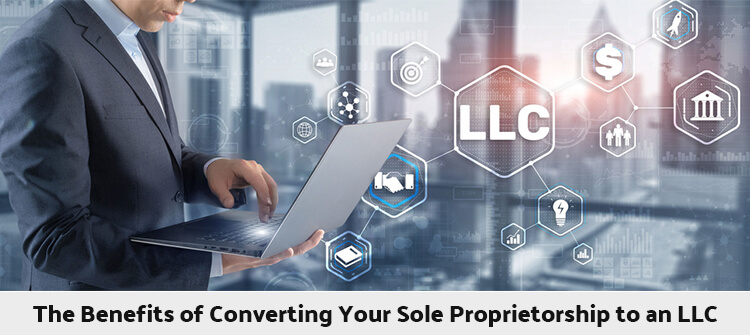Understanding LLC Protection for Personal Assets
June 26, 2023 | Company Incorp | No Comments

Protecting personal assets is an important consideration for anyone interested in setting up a business. One of the most popular options is to create a limited liability company (LLC). An LLC offers the advantages of protecting the personal assets of its members from the debts and liabilities of the business. In this blog post, we will discuss the basics of how an LLC works to protect personal assets.
What is an LLC and how does it work?
A Limited Liability Company (LLC) is a type of business entity that combines the personal liability protection of a corporation with the tax benefits and operational flexibility of a partnership or sole proprietorship. It is a legal structure that separates the owner’s personal assets from the company’s assets. Making it easier to protect personal assets in case of a lawsuit or other legal dispute.
The structure of an LLC is similar to a corporation, but with more flexibility and simplicity. The owners of an LLC are called members, and they can be individuals or other business entities. The LLC is managed either by the members themselves or by appointed managers.
One of the key features of an LLC is that the members’ personal assets are generally protected from the company’s debts and legal liabilities. This means that if the LLC is sued or goes bankrupt, the members’ personal assets such as their home or personal savings account are not at risk.
Another advantage of an LLC is that it provides pass-through taxation. This means that the company’s profits and losses are reported on the members’ personal tax returns, and the company itself does not pay federal income tax. This can lead to significant tax savings for the members.
Overall, an LLC provides personal liability protection and tax benefits for its members. It is a popular choice for small business owners and entrepreneurs who want to protect their personal assets and have flexibility in how their company is managed.
Some Related Blogs
- LLP Registration Benefits for Small Businesses
- Different Types of Company Formation Available in the USA
- Forming an LLC: Smart Move For Your Business
- Simplified Guide to Register a Company Successfully
Advantages of forming an LLC for personal asset protection
If you are a business owner or entrepreneur. You might have considered forming a Limited Liability Company (LLC) for personal asset protection. An LLC is a type of business structure that offers limited liability protection to its owners or members. In this section. We will discuss the advantages of forming an LLC for personal asset protection.
- Limited liability protection: One of the biggest advantages of forming an LLC is that it offers personal asset protection. This means that if the business is sued or faces financial difficulties. Your personal assets will be protected. The liability of the members or owners is limited to the assets owned by the LLC.
- Pass-through taxation: Another advantage of forming an LLC is that it offers pass-through taxation. This means that the profits and losses of the business are passed through to the members or owners. Who report them on their personal tax returns. This eliminates the need for double taxation. Which is a common issue with C corporations
- Flexibility in management: LLCs offer flexibility in management. The members or owners can choose to manage the business themselves or appoint a manager to run the business for them. This gives them more control over the management of the business.
- Professional image: Forming an LLC can give your business a more professional image. It shows that you are serious about your business and are willing to take the necessary steps to protect your personal assets.
- Easy to form: Forming an LLC is relatively easy and straightforward. It requires filing the necessary paperwork with the state, paying the required fees, and creating an operating agreement. This makes it an attractive option for small business owners and entrepreneurs.
Steps to form an LLC
Now that we have discussed the advantages of forming an LLC for personal asset protection, let’s dive into the steps involved in setting up an LLC:
Choose a name for your LLC
The name of your LLC should not be too similar to the name of another business in your state and must end with “Limited Liability Company,” “LLC” or “L.L.C.”
File Articles of Organization
You must file articles of organization with the state where you plan to operate your LLC. This document will include the name of your LLC, its purpose, the names of its owners, and how it will be managed.
Appoint a registered agent
A registered agent is responsible for receiving legal and tax documents on behalf of the LLC. The registered agent must be a resident of the state where the LLC is registered.
Draft an operating agreement
While not required in all states, an operating agreement outlines the structure and operation of your LLC. This includes how profits and losses will be allocated, the roles and responsibilities of the owners, and how the an LLC will be managed.
Obtain any necessary licenses and permits
Depending on your business activities. You may need to obtain licenses or permits from your state or local government.
Obtain an Employer Identification Number (EIN)
An EIN is a unique identification number issued by the IRS for tax purposes. This is required if your LLC has more than one member, employees, or if you elect to be taxed as a corporation.
Comply with ongoing requirements
To maintain your LLC’s liability protection. You must comply with ongoing requirements such as filing annual reports, paying state fees, and maintaining accurate records.
Forming an LLC may seem like a daunting task. But it’s worth it to protect your personal assets from business liabilities. Consulting with a legal professional can help ensure you follow the necessary steps and stay compliant with ongoing requirements.

Email us anytime!
Email customer service 24/7 at anna@companyincorp.org

Call us anytime!
Reach customer care 24/7 at (617) 545-9902



